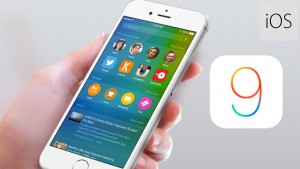 iOS 9 a fost lansat de catre compania Apple in luna septembrie a acestui an si desi s-a speculat ca el ar urma sa ofere performante bune si pe iPhone, iPad sau iPod Touch-urile vechi, iata ca acest lucru nu s-a intamplat pentru toata lumea.
iOS 9 a fost lansat de catre compania Apple in luna septembrie a acestui an si desi s-a speculat ca el ar urma sa ofere performante bune si pe iPhone, iPad sau iPod Touch-urile vechi, iata ca acest lucru nu s-a intamplat pentru toata lumea.
Apple a fost actionata recent in judecata in SUA de catre utilizatori de iPhone, iPad sau iPod Touch-uri care acuza compania americana ca are practici inselatoare de promovare ale iOS 9, sustinand ca el este compatibil cu iDevice-urile vechi, fara a spune ca instalarea sa reduce serios perofrmantele.
iPhone 4S este adus in discutie in proces, printre alte dispozitive, el avand in iOS 9 performante cu mult reduse fata de cele oferite in iOS 8.x, Apple fiind acuzata ca nu anunta in prealabil acest lucru si ca nu permite instalarea iOS 8 pe aceste dispozitive.
Peste 100 de clienti ai companiei Apple sunt mentionati in cerere de chemare in judecata si in ea se sustine ca iPhone 4S devine practic imposibil de utilizat dupa instalarea iOS 9, terminalul functionand foarte greu indiferent de aplicatie, avand lag la inregistrarea atingerilor, blocandu-se sau inchizandu-se din senin.
When iPhone 4s owners are faced with the dilemma of continuing to use a slow, buggy phone or spend hundreds to buy a new phone, Apple often benefits because consumers will often buy a new iPhone to keep their investment in the App ecosystem. Furthermore, iPhone owners will buy a newer iPhone when faced with the choice because it is familiar and they can easily transfer their information, media, contacts, and apps without a major disruption in usage.
Aceste acuzatii privind minciunile din promovarea iOS 9 sunt completate de cele care sustin ca Apple stia ce impact are acest update asupra iDevice-urilor vechi si ca l-a lansat oricum fara a-i avertiza pe utilizatori ca vor avea performante reduse dupa instalarea sa.
In final, cererea de chemare in judecata sustine ca Apple a creat un ecosistem inchis in care isi obliga utilizatorii sa-i cumpere la nesfarsit dispozitivele pentru a nu pierde aplicatiile cumparate din App Store, afirmand ca aceasta ar fi o practica neconcurentiala, desi Google actioneaza la fel.
Pentru toate aceste neajunsuri reclamantii cer daune de 5 milioane de dolari de la compania Apple si daca este sa privim lucrurile obiectiv, atunci Apple ar trebui sa fie obligata sa plateasca mai mult decat atat pentru modul in care isi gandeste actualizarile.
An dupa an compania Apple lanseaza actualizari pentru iOS si an dupa an reduce simtitor performantele iDevice-urilor utilizatorilor, insa v-am avertizat de fiecare data despre aceste probleme si v-am prezentat teste comparative de performanta, asa ca stiti cu totii ce va asteapta inainte sa faceti un update.





















